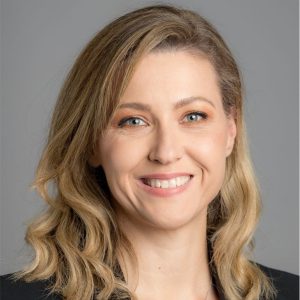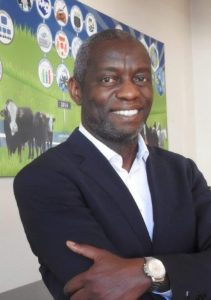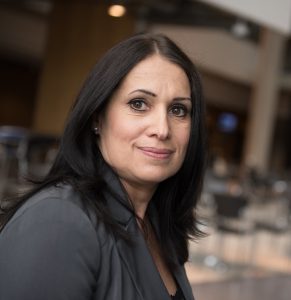KEYNOTES
 Prof. Celia Abolnik PhD (Zoology)
Prof. Celia Abolnik PhD (Zoology)
Department of Production Animal Studies, Veterinary Science Faculty at the University of Pretoria, South Africa
Celia Abolnik (née Stipinovich) obtained her PhD (Zoology) through the University of Pretoria in 2007. She was appointed as a junior researcher at ARC-OVI in 2000 and successfully applied for a senior researcher position in 2003, which she held until July 2012. Her research at ARC-OVI focused on avian influenza and Newcastle disease. In August 2012 she was appointed as the Research Chair: Poultry Health and Production in the Department of Production Animal Studies, which is funded by the Southern African Poultry Association. She is considered a sub-regional expert in avian influenza, is the South African representative of the OIE’s OFFLU network and is the author of 30 scientific publications.
Research
Highly pathogenic strains of H5- and H7-type avian influenza (HPAI) periodically emerge from the poultry population, causing highly infectious and lethal disease in both poultry and humans. South African ostriches have been affected by numerous outbreaks of HPAI H5N2 and, more recently, low pathogenic H7N1 influenza (LPAI) – with disastrous economic consequences. Monitoring wild bird populations (the natural reservoirs of the precursor LPAI viruses) is an important activity, complicated by the lack of predictability of movements of sub-Saharan duck species compared to the populations of the northern hemisphere. When transmission occurs, the ostrich thus far appears to be the only non-gallinaceous terrestrial bird that is capable of converting LPAI to HPAI. The mechanism of this conversion and the potential of the ostrich to produce potentially pandemic human influenza strains is a key focus area. Identifying the sources, strains, epidemiology and pathogenicity of and vaccine efficacy against poultry pathogens such as infectious bronchitis virus, salmonella, mycoplasmas and avian paramyxoviruses in both South Africa and other parts of Africa remains a priority, since outbreaks regularly compromise sustainable livelihoods of resource-poor communities.
Keynote 1: Friday 17 November, 17h15 – Avian Influenza: An African perspective
———————
 Prof. Baptiste Dungu BVSc(Hons), MSc, PhD, Veterinary Science, Vaccinology
Prof. Baptiste Dungu BVSc(Hons), MSc, PhD, Veterinary Science, Vaccinology
Associate Professor: Vet School UNIKIN; Veterinary and Vaccinology Specialist: Design Biologix, South Africa; Member of the Scientific Commission of the OIE
A qualified South African veterinarian, with a PhD in vaccinologist (University of Pretoria), currently vaccinology specialist at Design Biologix, and formerly Chief Executive Officer at Onderstepoort Biological Products in South Africa, and Head of Strategy and Business Development for MCI Santé Animale in Morocco.
He is one of 6 members of the Scientific Commission of the World Animal Health Organisation (OIE), Paris, France; and a Board member of the IVVN.
He has more than 20 years of international experience in vaccine research, development, manufacturing and commercialisation.
Form 1992 to 2001 he worked at ARC-Onderstepoort Veterinary Institute (South Africa) in different capacity, first as a researcher, then as head of the FMD vaccine development and production division. Between 2002 & 2008 he has been an executive at Onderstepoort Biological Products (OBP, South Africa), as CSO and COO.
From 2008 and 2014, in his capacity as Senior Director R&D for GALVmed, based in Edinburgh, UK, he was in charge of program development and scientific strategic direction of the organisation. He was overseeing product development activities and building international partnerships, which included the management of a pipeline portfolio of 24 products (vaccine, drugs and diagnostic tests), through partnerships with more than 50 institutions around the world, including research, academic, pharmaceutical and international organisations. Since 2014, he was the head of the Strategy and Business development of MCI Sante animale.
Over the past 15 years, he has conducted consultancies in more than 20 African countries for different international organizations such as IAEA, FAO, as well as the African Union-IBAR and SADC.
He has one patent, more than 30 peer-reviewed articles to his credit, and more than 80 congress contributions and other publications.
Vaccine late development and delivery, virology, tropical infectious diseases.
Keynote 2: Friday 17 November, 18h15 – What Innovative approaches and technologies would be applicable for vaccine development and production in Africa?
———————

Professor at the Faculty of Veterinary Medicine of the University of Montreal and the Director of the Swine and Poultry Infectious Diseases Research Centre
Dr. Mariela Segura is full Professor at the Faculty of Veterinary Medicine of the University of Montreal and the Director of the Swine and Poultry Infectious Diseases Research Centre, a strategic research network of Quebec, Canada. Prof. Segura is also the Associate Director of Animal Health & Agriculture of the Canadian Glycomics Network (GlycoNet).
Mariela Segura received her M.Sc. and Ph.D. from the Faculty of Veterinary Medicine of the University of Montreal, where she started her independent research in 2007. She presently holds a Canada Research Chair in Immunoglycobiology of infectious diseases, which are awarded to outstanding researchers acknowledged by their peers as world leaders in their fields. Her laboratory applies multidisciplinary approaches, from biochemistry to cellular and molecular immunology, to dissect the role of bacterial capsular polysaccharides on the immuno-pathogenesis of the disease caused by pathogenic streptococci, such as Streptococcus suis. Dr. Segura is also interested in glycobiology research and carbohydrate-based vaccine development.
Research contributions of Prof. Segura have been recognized by 27 awards and distinctions, a few of which are the UNESCO-L’Oréal Canada for Women in Science Research Excellence Award; the ‘Zoetis (Pfizer)’ Award of Excellence in Research; the ‘Fisher Award’ of the Canadian Society of Microbiologists, and the Women of Distinction Award in Science and Technology. She is author or co-author of more than 150 publications, including research articles, review articles and book chapters and over 60 invited lectures worldwide. She has contributed to the training of more than 100 students and research trainees.
Keynote 3: Monday 20 November, 15h00 – Streptococcus suis interactions with B lymphocytes: uncovering the role of IgM
———————

Deputy Director, Livestock Team at the Bill and Melinda Gates Foundation
Dr Samuel Thevasagayam leads the program’s livestock portfolio, overseeing implementation of the foundation’s strategy for animal health, animal production, and animal systems. Before joining the foundation in 2012, Sam spent most of his career within the pharmaceutical industry, working in clinical development, regulatory affairs, business development, and external research alliances.
Sam was responsible for the development and registration of several drugs and vaccines (human and animal) in North American, European, and international markets. Previously, he served as the director of research and development for global alliances for livestock veterinary medicine with GALVmed, a not-for-profit animal health organization. He spent his early career teaching and practicing companion animal internal medicine before spending five years in veterinary virology research at the United Kingdom’s Pirbright Institute.
Sam holds a degree in veterinary medicine and surgery from the University of Peradeniya in Sri Lanka, a Ph.D. in veterinary virology for his research on foot-and-mouth disease virus at the Pirbright Institute, and an MBA from the Säid Business School at the University of Oxford. Sam is a fellow of the Royal Society of Biology.
Keynote 4: Monday 20 November, 16h00 – Veterinary Immunology: from knowledge to solutions
